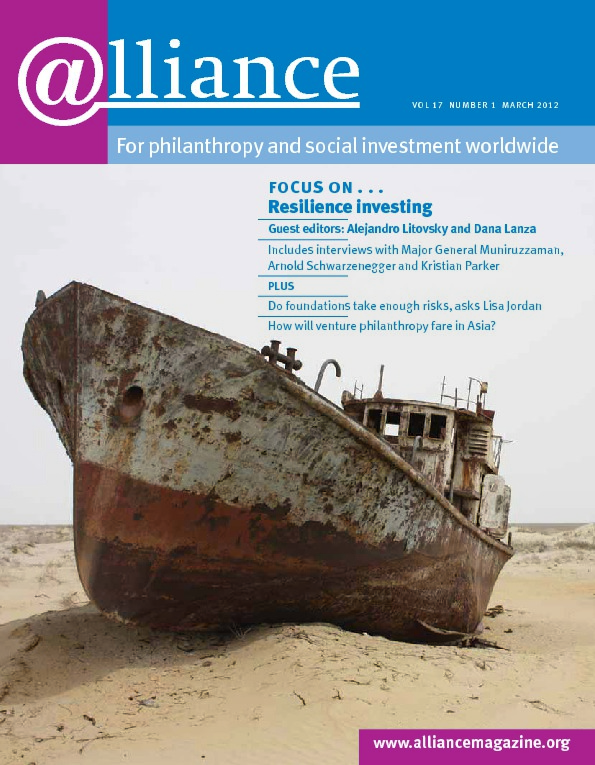The worst consequence of perhaps the worst recession the world has ever known may be that we were all looking the other way as the world slipped into irreversible global warming and the vital natural resources on which we depend became depleted beyond repair.
For governments desperate to cut deficits, cutting green investment programmes and green subsidies may seem like an easy win. The public, increasingly squeezed economically, is putting minimal pressure on their leaders to consider the long-term effects. The recent agreement to negotiate a follow-up treaty to Kyoto has been hailed as a great advance, but binding commitments still lag and the timetable doesn’t envisage an agreement in place until 2020, eight precious years from now. More urgent matters like water scarcity, biodiversity loss and food security still sit outside the concerted agenda on climate change.
That is why we have decided to focus this Alliance special feature on resilience investing. Major General Muniruzzaman, formerly with the Bangladesh army, paints a compelling picture of the consequences of climate change in south Asia.
I would normally be the first to say that issues as huge as climate change can be tackled only by governments and international institutions. But with governments focused elsewhere, it’s heartening to see other players taking action to fill the vacuum. Arnold Schwarzenegger’s R20 sees action by regional governments as the way forward. Kristian Parker’s Oak Foundation tells us that given current ecological and resource trends, the window of time we have to act is rather short.
Both Climate Change Capital and the Yansa Group attempt to structure financial arrangements that put communities that own natural resources in the driver’s seat. The Earth Security Initiative attempts to bring ecological risk to the forefront of countries’ political and investment decisions. Many of these initiatives are new and untested; they involve coalitions to change the basic building blocks of capitalism. All are ambitious and offer philanthropists and social investors an opportunity to get involved now, and start tackling this gravest of threats to the human race.






Comments (0)